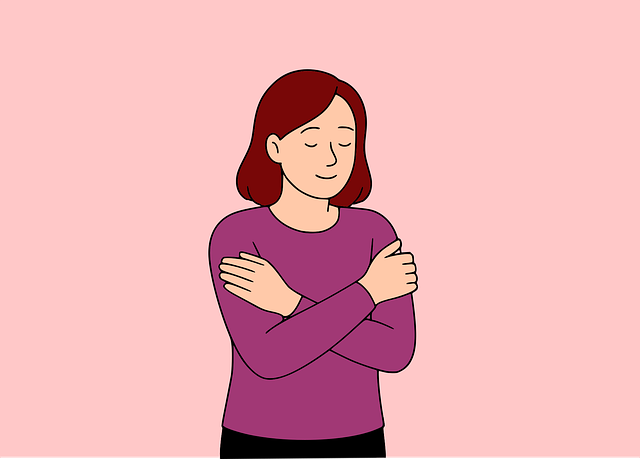Longmont Polyamorous and Open Relationships Therapy provides a safe space for couples to navigate self-care challenges, fostering healthy boundaries and individual needs. Emphasizing cultural sensitivity, therapists assist partners in recognizing personal requirements through tailored exercises. This approach strengthens bonds, enhances well-being, and supports the unique demands of polyamorous and open relationships in Longmont.
In the vibrant, diverse landscape of Longmont’s polyamorous and open relationships therapy communities, prioritizing self-care is not just a personal choice—it’s a cornerstone of overall well-being. This article delves into the fundamental role of self-care, exploring how individuals within these unique relationships can overcome barriers to practice effective self-care strategies. From understanding the concept to implementing therapeutic techniques, discover how to enhance your well-being and nurture fulfilling connections in Longmont’s polyamorous and open relationship scene.
- Understanding Self-Care: The Foundation of Well-being in Longmont Polyamorous Communities
- Overcoming Barriers to Self-Care Practices within Open Relationships
- Strategies and Techniques for Enhancing Self-Care in Longmont Polyamorous and Open Relationships Therapy
Understanding Self-Care: The Foundation of Well-being in Longmont Polyamorous Communities

In Longmont’s polyamorous communities, understanding self-care goes beyond individual practices—it forms the cornerstone of overall well-being and is integral to the success of open relationships. This concept involves recognizing that healthy relationships thrive when all involved prioritize their emotional, mental, and physical health. Members of these diverse communities often navigate unique challenges, such as navigating complex interpersonal dynamics and managing potential societal misunderstandings. Therefore, self-care becomes a powerful tool for fostering resilience, communication, and mutual support within these relationships.
Longmont Polyamorous and Open Relationships Therapy plays a vital role in promoting emotional well-being promotion techniques tailored to the specific needs of polyamorous individuals and couples. Crisis intervention guidance and healthcare provider cultural competency training are essential components of this process. By addressing self-care as a foundational aspect, therapists enable community members to enhance their relationships by improving individual emotional resilience, thereby fostering healthier connections and overall community harmony.
Overcoming Barriers to Self-Care Practices within Open Relationships

In open relationships, individuals often face unique challenges when it comes to prioritizing self-care. Overcoming barriers requires a deep understanding and support system that addresses both the emotional and practical aspects of self-care within this context. Many polyamorous or open relationship couples struggle with feeling enmeshed or guilty about dedicating time for individual needs due to the collective nature of their relationships. Longmont Polyamorous and Open Relationships Therapy can provide a safe space for partners to explore these feelings and develop strategies that foster healthy boundaries.
The Cultural Sensitivity in Mental Healthcare Practice is crucial here, as therapists should be adept at navigating the diverse emotional healing processes within open relationships. Encouraging self-awareness exercises tailored to each partner’s unique circumstances can help them recognize when they need a break, whether it’s for personal growth, creative pursuits, or simply solitude. By integrating these practices into their lives, couples can strengthen their relationships and improve overall well-being.
Strategies and Techniques for Enhancing Self-Care in Longmont Polyamorous and Open Relationships Therapy

In Longmont Polyamorous and Open Relationships Therapy, enhancing self-care practices involves tailored strategies to navigate the unique dynamics of these relationships. One key technique is incorporating stress management workshops designed for mental health professionals, offering tools to balance the demands of polyamorous lifestyles. These workshops promote mindfulness, relaxation techniques, and healthy boundaries, which are essential for maintaining emotional well-being within complex relationships.
Additionally, fostering open communication and conflict resolution skills through therapy sessions equips individuals with constructive ways to address challenges. By learning effective conflict resolution techniques, couples can improve understanding and strengthen their bonds. Regular check-ins, risk assessments for mental health professionals, and self-care rituals specific to each relationship contribute to a resilient and fulfilling polyamorous or open relationship dynamic in Longmont.
In conclusion, fostering well-being within Longmont polyamorous and open relationships requires a concerted effort to prioritize self-care. By understanding the unique challenges these communities face, recognizing barriers, and implementing effective strategies, individuals can enhance their overall mental health and happiness. The techniques discussed in this article provide a roadmap for improving self-care practices, ultimately strengthening connections within Longmont polyamorous and open relationships therapy.









